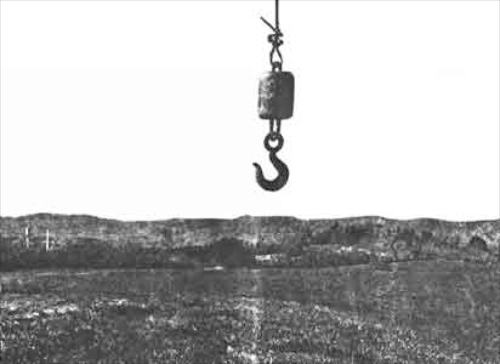Real St Patrick
Fifteen hundred years ago, a Dublin-based shepherd made his mark on history by turning the Chicago River green, staggering inebriated through the city, and inventing the "Kiss Me I’m Irish" hat. Along the way, he wrote Bushmills whiskey drinking songs about the pain of being alive, mixed a cocktail whose name evokes an act of terror, and dyed his hair red. He magically expelled snakes from the island of his birth, wrote a lyrical memoir of his terrible childhood, won the Rose of Tralee beauty contest, mixed lager and Guinness together (presumably out of an excess of self-loathing and bad taste), had a great oul’ Famine, stared meaningfully across the Atlantic, and dreamed of America.
He still hasn’t found what he’s looking for.
It’s St Patrick’s Day weekend, and despite the fact that millions of people will celebrate something like this vision of what it means to be Irish, pretty much none of the above is true.
Patrick wasn’t Irish, for a start. Born in Britain, he didn’t tend sheep in Ireland until after he was kidnapped and taken to Eire at age 16; there probably weren’t any snakes; and Bushmills didn’t receive its grant to distill until 1608. ...
We know very little else for sure about Ireland’s patron saint, the embodiment of the spirit of the place where I was born and raised, and the reason many of us will be partying this weekend to remember a land where most of us have never set foot, but which holds a strange call for people across the world.
To help me negotiate the labyrinth of Patrick stories, I’m grateful for my friend Davy in Belfast, a man who fuses the written record with oral tradition, and arrives at a conclusion that’s worth reflecting on today, tomorrow, and beyond.
For Davy, Patrick matters for one reason above all: Before Patrick, we were seen only as barbarians or primitives — a theme that prevailed in much of the British-Irish conversation until not so long ago. Anti-Irish humor was a staple of English stand-up comedy, not to mention the explicit sectarianism of "No Irish Need Apply" want ads on employment noticeboards and rental accommodation alike.
Mutual suspicion mingled with real violence, of course, and centuries of enmity characterized relationships across the two neighboring islands. It wasn’t mystical, it wasn’t romantic, it wasn’t fun.
And at the end of the day, we didn’t drown our sorrows by consuming mixed drinks called "Irish car bombs."
This might all have been avoided had we been attentive to the spirit embraced by our patron saint — a fella who came from Britain, and told everyone else what we already knew: The Irish are human.
This Patrick — Davy’s Patrick, my Patrick, hopefully something like the real Patrick — embodied empathy with people who are different. He knew that his own good was intimately connected to the common good; and that the powerful can perhaps be saved from the effects of their oppression only by walking humbly with those they have hurt.
Not an easy task, of course. Nor is it easy to dispute the assertion that it’s true. So when I celebrate Patrick’s Day this weekend, I’ll think about what it means to be human, and see the full humanity in others.
I’ll think of another man, born on St Patrick’s Day a hundred years ago — Bayard Rustin, who mentored Martin Luther King in Gandhian nonviolence, organized the March on Washington in 1963, and was forced to stay in the background on account of the refusal of others to respect his humanity.
I’d like to think that Patrick would have said Rustin was human. So would John O’Donohue, the closest to a personification of Celtic spirituality Ireland has seen in recent times. This priest, poet, prophet and friend died four years ago, but left behind work of immense importance to anyone wanting to embrace an Irish spirituality, perhaps best summed up in his short poem ‘Fluent’:
"I would love to live as the river flows, carried by the surprise of its own unfolding."
And maybe that’s the aspect of Irishness that would be most valuable to meditate on this St Patrick’s Day:
To live in the tension between Being and Becoming; to stay still long enough to change the things you can, accept the things you can’t, and have the wisdom to know the difference.
Learning to laugh at the absurd part of life, committing to political compromise instead of killing each other, and taking care of the vulnerable?
Couldn’t hurt.
